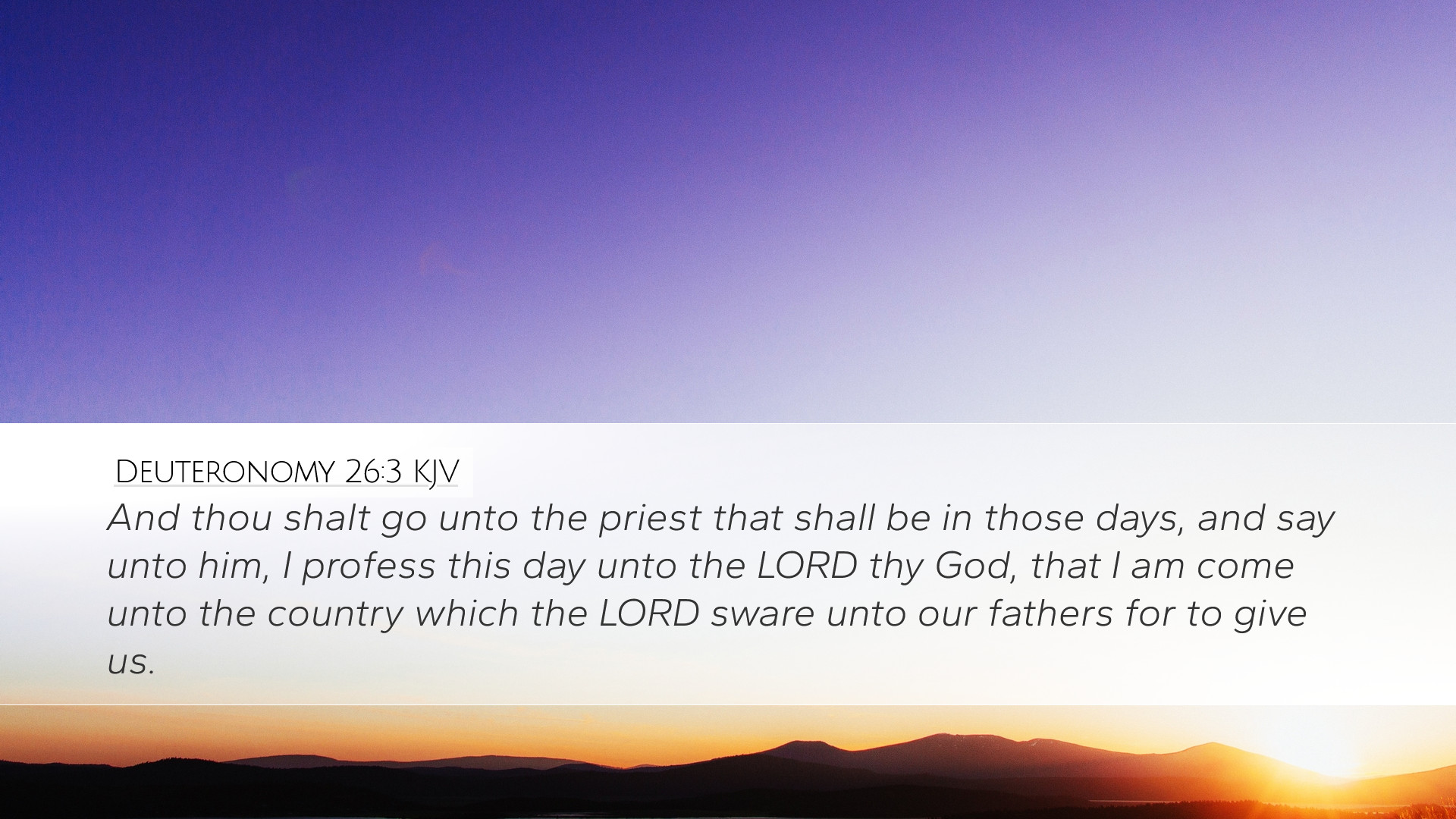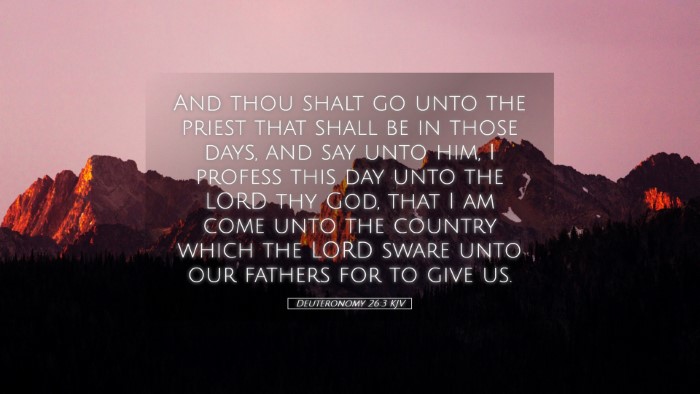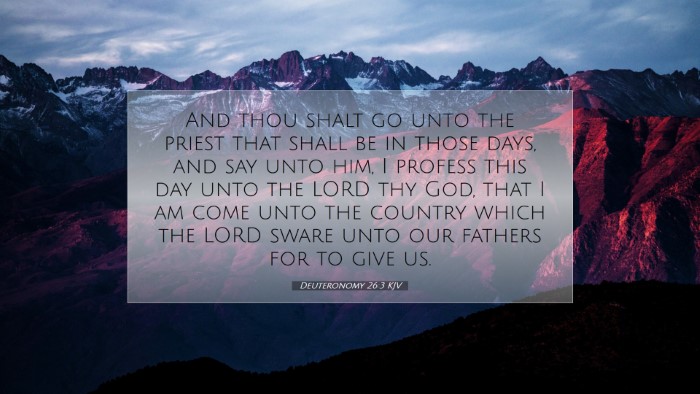Commentary on Deuteronomy 26:3
Bible Verse: "And you shall go to the priest who is in office at that time, and say to him, 'I declare today to the LORD your God that I have come into the land that the LORD swore to our fathers to give us.'" (ESV)
This verse marks a significant moment in Israel's national and spiritual life, encapsulating a formal declaration of gratitude and acknowledgment of God's Covenant. This commentary will draw insights from several public domain sources, namely Matthew Henry, Albert Barnes, and Adam Clarke, presenting a rich tapestry of meanings that serve to inspire pastors, students, theologians, and Bible scholars.
Context and Overview
Deuteronomy, as the final book of the Pentateuch, serves as a farewell address of Moses to the Israelites before they enter the Promised Land. Chapter 26 specifically addresses the ceremonial act of presenting the firstfruits, which symbolizes God's providence and faithfulness.
Interpretation of the Text
Matthew Henry's Commentary:
Henry emphasizes that this presentation is not merely an act of ritual but a profound acknowledgment of God's grace. He notes the importance of declaring one's faith before the priest, who represents God’s authority within the community. This declaration is a means of cementing the relationship between God and His people, demonstrating that even in abundance, gratitude is paramount.
Albert Barnes' Notes:
Barnes focuses on the significance of the phrase "I declare today." He stresses the immediacy of this declaration, highlighting that it is an act of faith performed in the presence of God and His appointed leaders. This act is not only a personal testimony but also serves as a witness to the community, reaffirming the shared covenant and collective identity as God's chosen people.
Adam Clarke's Commentary:
Clarke elaborates on the ritual's implications, emphasizing that the act of presenting firstfruits is an acknowledgment of God's past actions—particularly His promises of land and blessing. He points out that remembrance is essential in the practice of faith, as it encourages a community-oriented spirituality that does not simply focus on individual blessings but recognizes the corporate identity within God's family.
Theological Themes
- Gratitude: The central theme of this verse is gratitude. It recalls the necessity of expressing thanks to God for the blessings received, recognizing that every good thing originates from Him.
- Covenant Faithfulness: This declaration reinforces the covenant relationship between God and Israel, showcasing God's unwavering promises and the people's commitment to follow Him.
- Community Worship: The involvement of the priest in the declaration signifies the community aspect of worship. It emphasizes the importance of shared experiences in faith and devotion.
- Theological Declaration: The act itself serves as a theological declaration of God's providential care and the history of His dealings with His people. It acts as a reminder of identity—who they are as descendants of the patriarchs.
Practical Applications
This verse calls for several practical applications relevant to contemporary worship and communal identity:
- Acts of Thanksgiving: Just as the Israelites were instructed to bring their firstfruits, modern believers are encouraged to recognize and express thanks for daily blessings.
- Corporate Worship: The involvement of leaders reinforces the significance of communal worship. Pastors and churches are urged to create spaces where congregants can collectively express their gratitude and faith.
- Remembrance of God's Promises: Like the declaration of the land, Christians should regularly recall and meditate on God’s promises, fostering a deeper faith and trust in His plans.
- Encouragement to Testify: Believers are called to share their personal testimonies of God’s work in their lives, fostering community support and faith-building experiences.
Conclusion
Deuteronomy 26:3 serves as a profound reminder of the significance of gratitude in the life of a believer. Acknowledging God's faithfulness not only strengthens individual faith but also fosters a rich communal experience of worship. Drawing from the insights of classical commentators such as Matthew Henry, Albert Barnes, and Adam Clarke, we see that this verse invites believers into a deeper, more meaningful relationship with God—rooted in acknowledgment, remembrance, and thanksgiving.
As pastors, students, theologians, and scholars explore this text, they are challenged to consider how these principles apply in their own contexts, encouraging a living faith that continually recognizes and celebrates the goodness of God.


